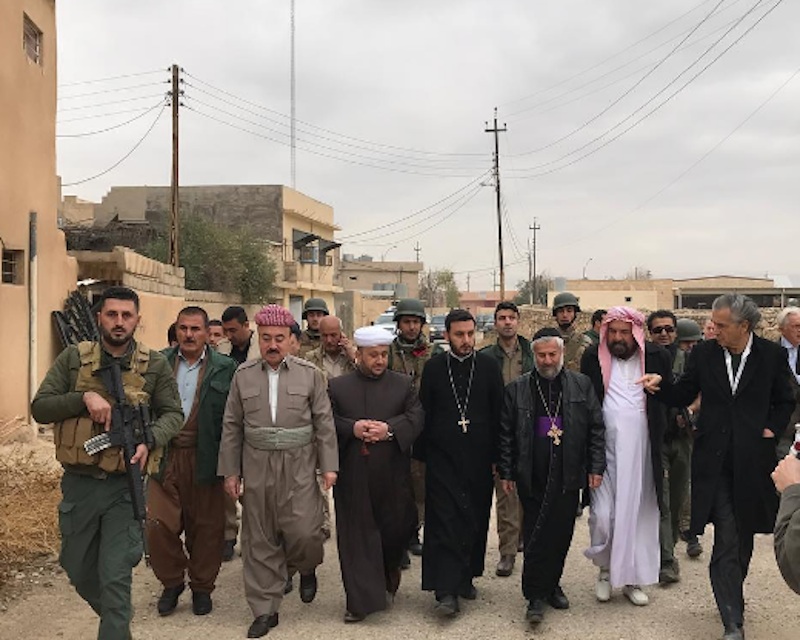There are very few genocides in contemporary history.
There are a great many massacres but, fortunately, very few genocides. There was the Armenian extermination. That of the Jews. The auto-genocide of Cambodia. The atrocious genocide of Rwanda.
And there is another people who share this terrible destiny, this cursed privilege: the Kurdish people.
The 4,500 villages destroyed from the 1970s through 1988, their names have haunted me for decades. These are the places—Halabja, Qara Dagh, Sergalou, and many others—where children, women, and men were eliminated just because they were Kurdish. These are the sites of remembrance, horrific and painful, where 182,000 people were assassinated during the Anfal campaign—not for what they did, but for who they were.
Of the reasons that I am so deeply committed to the Kurdish cause, there is, of course, the fact that the Kurds were on the frontlines against ISIS.
There is the democratic example and exception that they incarnate in this region of the world. There is the equality between men and women which extends to the battlefield and which I show in my two documentaries, The Battle of Mosul and Peshmerga.
But there is also this idea of a shared memory of genocide.
And an active solidarity which unites all the women and men who defend this flame of remembrance for a genocidal massacre.
A Czech philosopher, Jan Patočka, wrote in 1968 about la solidarité des ébranlés, the brotherhood of the shaken—the community of fate of all those who have been denied their very belonging to Mother Earth: this is what I feel, today, when I happen to be among my Kurdish brothers of Erbil, Dohuk, Kirkuk,Halabja and Slemani.

